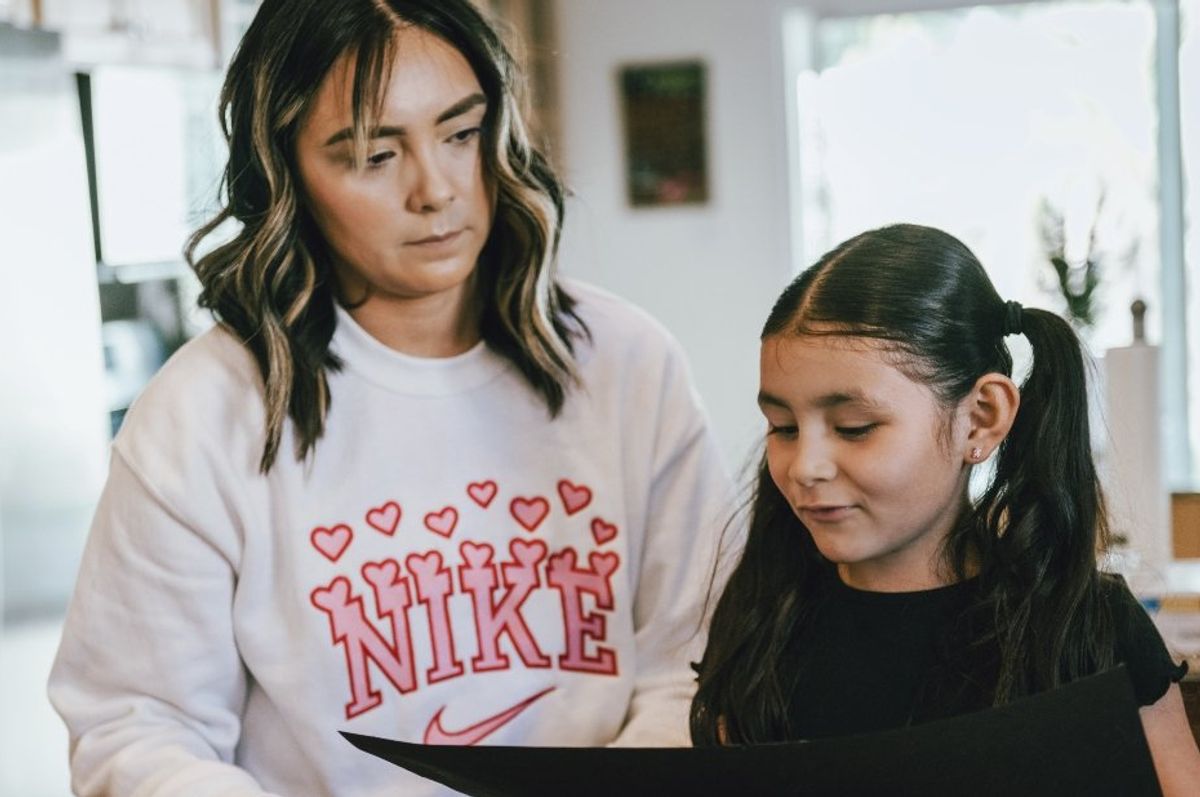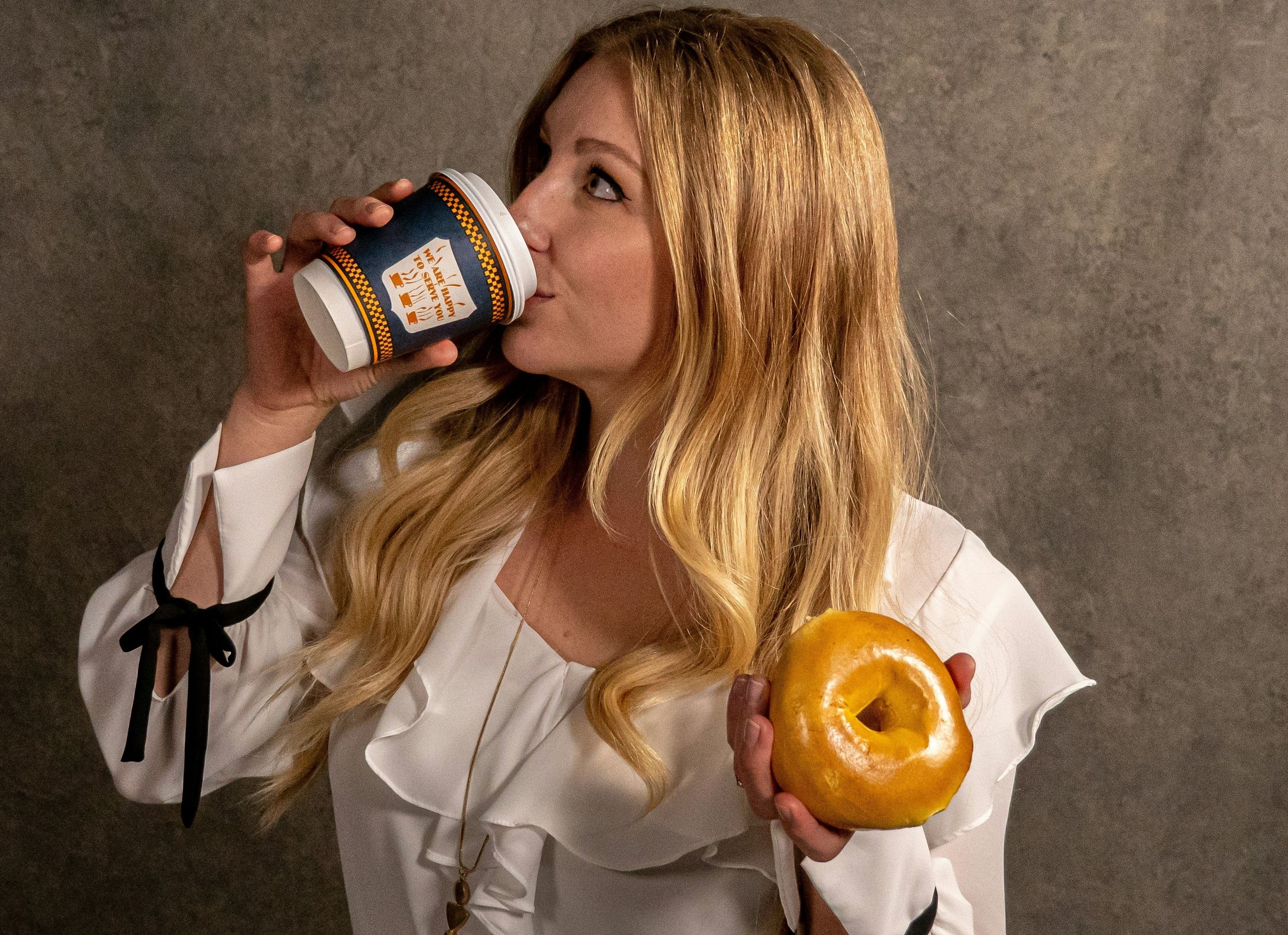The Gen X 'stay at home mom' crisis is real, but what's the solution?
Some moms in their 40s feel like they were lied to about what their "resume gap" would mean.

40-something moms who stayed home to be with their kids are finding themselves in uncharted waters.
A few generations ago, parents had pretty clearly defined roles with the dad generally being the breadwinner and the mom being the homemaker and stay-at-home mother. Then, in 1848, the women's rights movement in the United States began with a powerful second wave coming in the 1960s and 70s, empowering women in the workplace, ushering in the era of two working parents, and producing an entire generation of "latchkey kids."
Now those Gen X latchkey kids are parenting Gen Z, with the pendulum of working motherhood having swung somewhat to the middle. We were raised to believe we could be anything we dreamed of being and that we didn't have to choose between being a mom and having a career. Gen X also became mothers during the heyday of parenting self-help books that impressed upon us the importance of attachment and hands-on childrearing, as well as the era of super-scheduled kids, whose activities alone require a full-time manager.
As a result, those of us in our 40s have raised our kids straddling two worlds—one where women can have all of the career success we desire and one where we can choose to be stay-at-home moms who run seemingly effortless households. At first, we were told we could have it all, but when the impossibility of that became clear, we were told, "Well, you can have it all, just not at the same time." But as many moms are finding as their kids start leaving the nest, even that isn't the full truth.
in 2023, a Facebook post by Karen Johnson, aka The 21st Century SAHM (short for "stay-at-home mom") nailed the reality many stay-at-home moms in their 40s are facing as they find themselves floundering with the glaring gap in their resumes.
"This is for all the moms in their 40s who put their careers on hold to do the SAHM thing because you knew you couldn't do both—career you loved and motherhood—and do both WELL, so you picked, saying to yourself, 'This is just for now and we'll see,'" Johnson wrote. "But now it's 15 years later and so much has changed in your career field that you know you can't go back. So really, when you 'took a break' all those years ago, you gave it up."
Johnson explained that yes, moms know they should be grateful for the time they've had with their kids. Most are. That's not the issue. Whether a woman chose to be a stay-at-home mom because she really wanted to or because childcare costs didn't work in the financial equation of the family, the transition out of it feels like completely uncharted waters.
"Okay, so you're looking for a 'career' with part-time hours and a 100% flexible schedule because you're still Mom-on-duty but you do have *just* enough hours during the day to reflect on the fact that you *do* have a college degree (maybe even 2) and although being a mom is the greatest and most important job in the world, you *might* actually want something more to your life than folding laundry and running hangry children to 900 events and remembering that they're all due for dental cleanings," she wrote.
Yup. The "default parent" role is real and weighted heavily toward moms as it is. For stay-at-home moms, it's 100% expected, and that doesn't suddenly end when it's time to start thinking about joining the workforce again.
And, of course, moms barely have time to try to figure all of this out.

A working mom is the ultimate multitasker.
Photo by Memento Media on UnsplashSo, as Johnson says, "But for now, you cram yourself into the only pair of jeans you have right now that fit and find a t-shirt on the floor that isn't clean but isn't dirty and will pass for the 4 hours of mom-taxiing you're about to do and you tell yourself, 'I'll figure it out another day. Right now, I gotta get the kids to practice.'" Oof.
Johnson's entire post is worth a read, as it resonates with so many women at this stage of life. But just as telling are the comments from women who not only see themselves in Johnson's description but who feel like they were sold a bill of goods early in their motherhood. So many of us were led to believe that the skills and experiences of managing a family would be valued in the workplace simply because they should be and that the gap in their resume wouldn't matter.
"This hits hard. I am right there too. And all those volunteer hours & leadership positions people said would look good on my resume when I once again applied for jobs? Those people all lied. It means squat," wrote one person.
"Thank you! You spoke my heart. 42 this year, resigned from teaching almost 12 years ago, and never been more confused about my personal future, or exhausted in my present," shared another.
"I’ve never related to a post more in my life! THANK YOU. Your words perfectly summarize the loneliest, most important job in the world and how that perspective shifts in your 40s. It is confusingly beautiful," wrote another.
Some moms have chosen to see their post-stay-at-home era as a fresh start to learn something new, which might lend some inspiration to others.

Beginnings are often rough, but that's okay.
Photo by Alexander Grey on UnsplashThere is hope in the comments, too.
"I went back for my master’s degree at 47 years old. I’m now 50 in a new career I love and my husband is doing just fine pulling his weight with after school/carpool/dinner. Happy for the years I stayed home, happy with this new season too," shared one person.
"Yuuuup. I decided to go back to grad school at 45. It’s insane but every term I complete I’m like - omg I’m doing it! So don’t let sweaty out of shape bodies and carpool fatigue stop you. I take naps and write grad school papers and have meltdowns where I cry from the frustration of it all - but dammit I’m doing it!" wrote another.
One mom who is past this stage also offered some words of encouragement:
"So incredibly well written. I feel all these things and did throughout my 40s. Now I'm in my early '50s and I'm so glad I was able to stay home with my kids, but the guilt! The guilt of not using my education, the judgment of people who don't understand why someone would stay home with their kids, the social engineering... We just eat each other alive sometimes don't we? I wouldn't trade it for anything, but it is a very lonely road and one you always question. I can tell you that all three of my kids were so grateful to have a full-time parent. I might not have always been the best, but they were glad to always have someone to talk to if they needed it. It's hard to fill other people's buckets when your bucket isn't full, but the rewards do come back when the kids tell you thank you for everything that you've done.  "
"
Being a mom is hard, period. Working moms have it hard, stay-at-home moms have it hard, moms who have managed to keep one foot in the career door and one foot in the home have it hard. There's a lot that society could do to support moms more no matter what path they choose (or find themselves on—it's not always a conscious choice), from providing paid maternity leave to greater flexibility with work schedules to retirement plans that account for time away from the workplace. Perhaps that would at least make the many choices moms have today feel more like freedom and less like choosing between a rock and a hard place.
This article originally appeared two years ago.
- Mom's new email signature has parents everywhere applauding her honesty about expectations ›
- Mom gives master class rant about how impossible it is to have kids in sports while working full time ›
- Divorce attorney shares why working moms are leaving their marriages ›
- Gen X mom went to therapy after son gave ultimatum - Upworthy ›
- Man's 'special message' to stay-at-home-moms is lovely - Upworthy ›
- Dad asks how to help his working wife and keeps getting the same answer - Upworthy ›
- Mom demands half of husband's company to stay home with kids - Upworthy ›
- Mom spends 24 hours in a hotel to prove a point to her unappreciative husband. - Upworthy ›
- Texas UPS driver has a stern message for stay-at-home moms - Upworthy ›
- Stay-at-home mom shares frustrating reality about 'success' - Upworthy ›
- 'SAHMs Listen up!': Texas UPS driver has blunt message about entitlement and stay-at-home moms - Upworthy ›
- Gen X mom reenacts 'coming home from school in the 80s' and it couldn't be more perfect - Upworthy ›



 Millennial mom struggles to organize her son's room.Image via Canva/fotostorm
Millennial mom struggles to organize her son's room.Image via Canva/fotostorm Boomer grandparents have a video call with grandkids.Image via Canva/Tima Miroshnichenko
Boomer grandparents have a video call with grandkids.Image via Canva/Tima Miroshnichenko

 Worried mother and children during the Great Depression era. Photo by Dorthea Lange via Library of Congress
Worried mother and children during the Great Depression era. Photo by Dorthea Lange via Library of Congress  A mother reflects with her children during the Great Depression. Photo by Dorthea Lange via Library of Congress
A mother reflects with her children during the Great Depression. Photo by Dorthea Lange via Library of Congress  Families on the move suffered enormous hardships during The Great Depression.Photo by Dorthea Lange via Library of Congress
Families on the move suffered enormous hardships during The Great Depression.Photo by Dorthea Lange via Library of Congress
 A couple cooking in the kitchen with a cat sitting on the table beside chopped ingredients.
A couple cooking in the kitchen with a cat sitting on the table beside chopped ingredients.